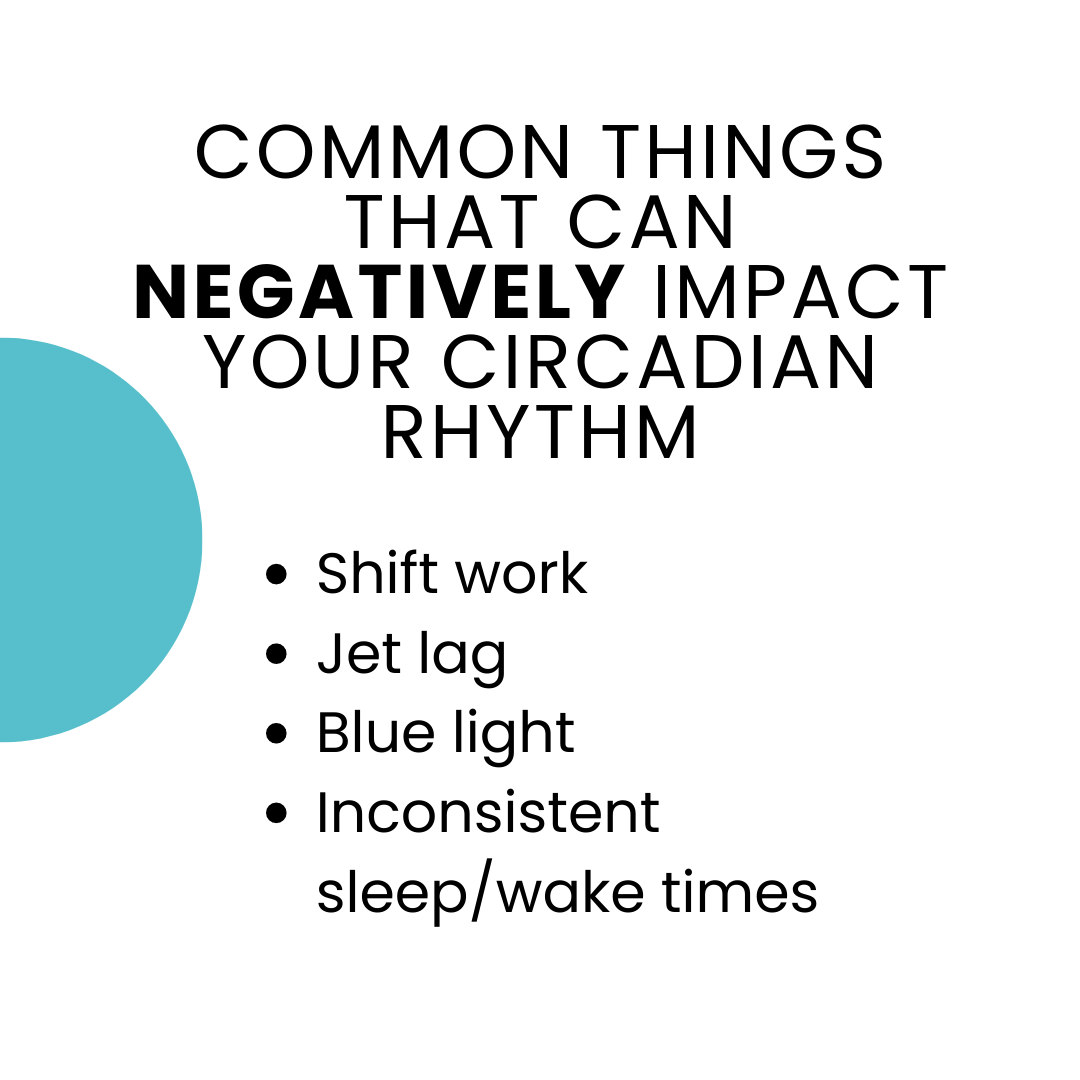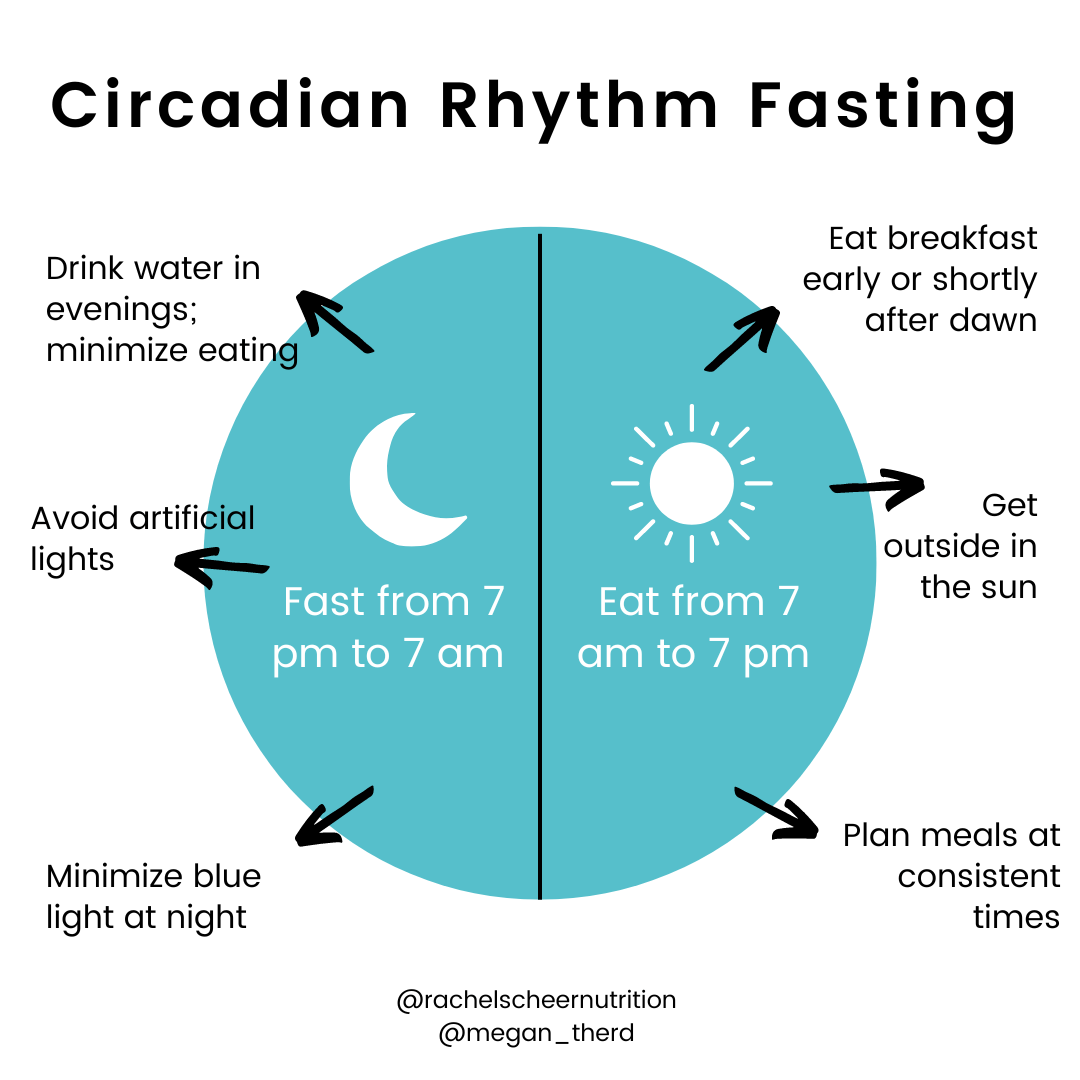Connecting With Your Circadian Rhythm
Your circadian rhythm is a 24 hour cycle that your body relies on.
How can your actions and lifestyle positively or negatively effect it? The answer might surprise you!
What is circadian rhythm?
Think of your body like a clock – it intuitively knows what it needs at what times. Of course, our work schedule, kids or other responsibilities, or even lifestyle can affect this clock… but internally, we ALL have sensors for our needs. This is your circadian rhythm!
This system relies on cues such as light, both internal and external temperature, and even meal timing. In fact, the moment that food even touches your tongue, your body begins sending signals that it is now time to digest your food.
What factors impact circadian rhythm?
 Imbalanced hormones can cause a host of circadian rhythm imbalances. In particular, we analyze cortisol, thyroid hormones such as TSH, and prolactin. Each of these can influence our sleep and wake cycle and vice versa – our sleep and wake cycle can influence hormone production.
Imbalanced hormones can cause a host of circadian rhythm imbalances. In particular, we analyze cortisol, thyroid hormones such as TSH, and prolactin. Each of these can influence our sleep and wake cycle and vice versa – our sleep and wake cycle can influence hormone production.
Because of this, another massive factor influencing circadian rhythm is nighttime routine and sleep! Not only does the quantity (in hours) of sleep matter, but the quality as well. Waking throughout the night can lead to exhaustion and decreased sleep quality overall. As well, exposing yourself to blue light, particularly in the evening, can make it difficult to fall and stay asleep.
Another factor influencing this cycle is stress. Similar to every area of our health, both physical and mental chronic stress can influence our internal clock. Sources of stress may include career or job obligations, family or relationships, chronic under or over eating, consuming inadequate foods/the wrong diet for our needs, mental health conditions, and more.
Lastly, the health of your gut greatly influences your circadian rhythm, too.
How does gut health influence your internal clock?
 Believe it or not, your gut has a massive impact on your internal clock!
Believe it or not, your gut has a massive impact on your internal clock!
For starters, irregular eating patterns such as snacking throughout the day or eating meals at inconsistent times can confuse your internal clock. This is an easy “fix” that can make a massive impact in regaining control of your internal clock.
However, other factors such as gut dysbiosis can greatly affect this cycle. Dysbiosis can refer to excess bacteria in your gut, and while it may be contributing to negative symptoms like bloat or weight loss resistance, it can even contribute to circadian rhythm imbalances! Beyond this, antibiotic use is another contributor to changes in the gut microbiome, which in turn will impact your internal clock.
How can you optimize your circadian rhythm for good?
Are you interested in optimizing this cycle so you can hack your health and achieve your goals in nutrition, fitness, and mindset? Don’t worry – our team at Rachel Scheer Nutrition has you covered!
Our Registered Dietitian and nutrition coach, Megan Motter, provides group coaching and a deep dive into circadian rhythm. This educational video will help you determine which hacks to implement today in order to conquer your circadian rhythm once and for all.
Catch the replay of our educational video here!
Are you interested in learning more about the Rachel Scheer Nutrition approach to functional wellness?
Book a FREE 30 minute call with our team here to learn more about Functional Wellness Coaching!

Rachel Scheer is a Certified Nutritionist who received her degree from Baylor University in Nutrition Science and Dietetics. Rachel has her own private nutrition and counseling practice located in McKinney, Texas. Rachel has helped clients with a wide range of nutritional needs enhance their athletic performance, improve their physical and mental health, and make positive lifelong eating and exercise behavior changes.
Read This Next
Micronutrients, or the vitamins and minerals your body needs, typically work like a team. To…
If you want to improve gut health, or even optimize your overall health, you’ve probably…
Have you ever found yourself grappling with the discomfort of abdominal distension, bloating, or cramping,…




